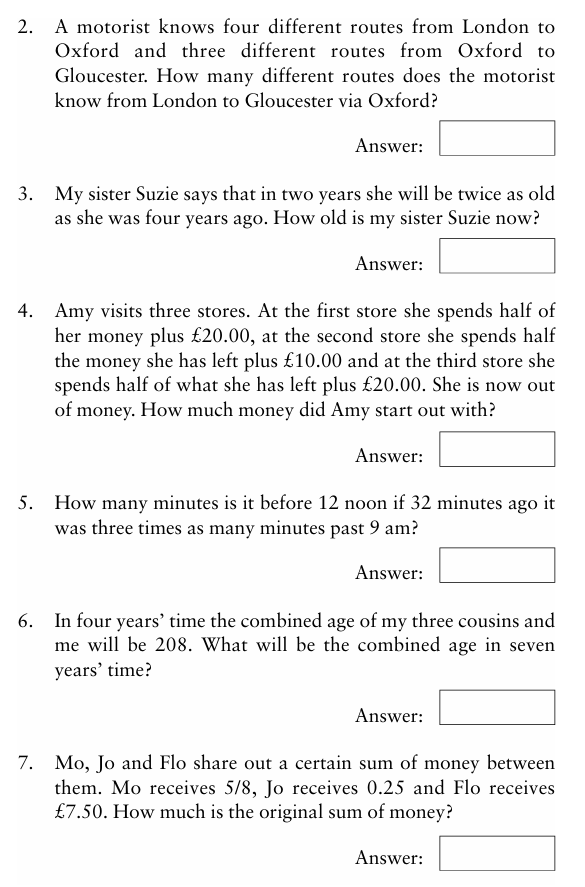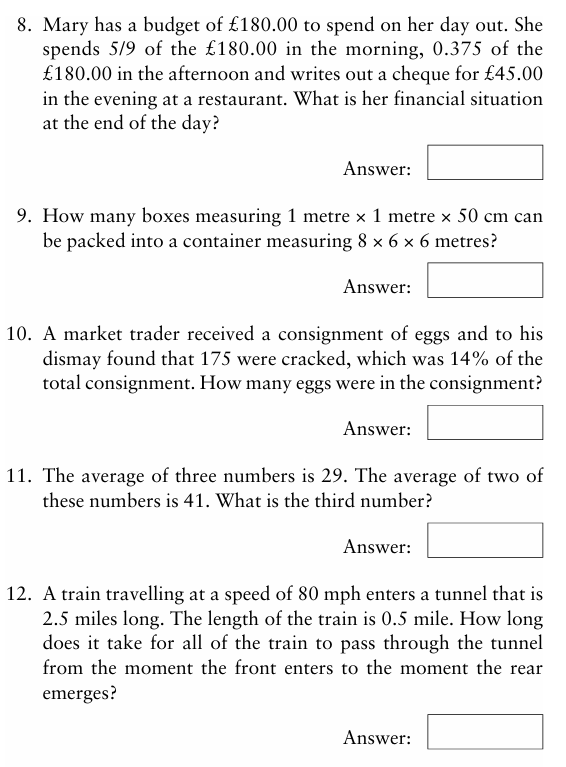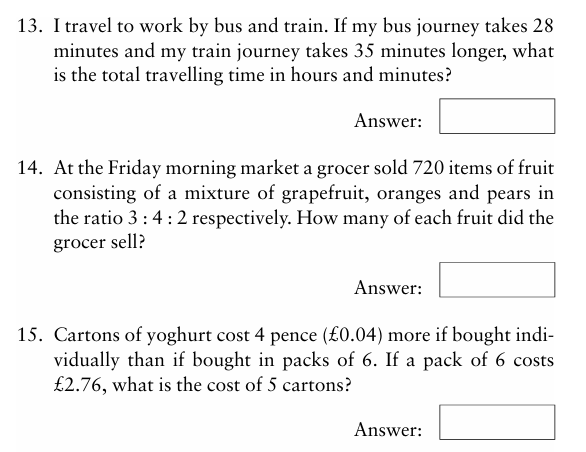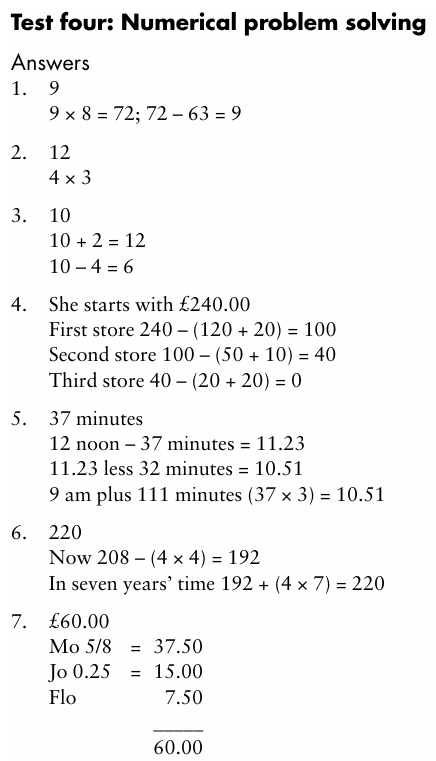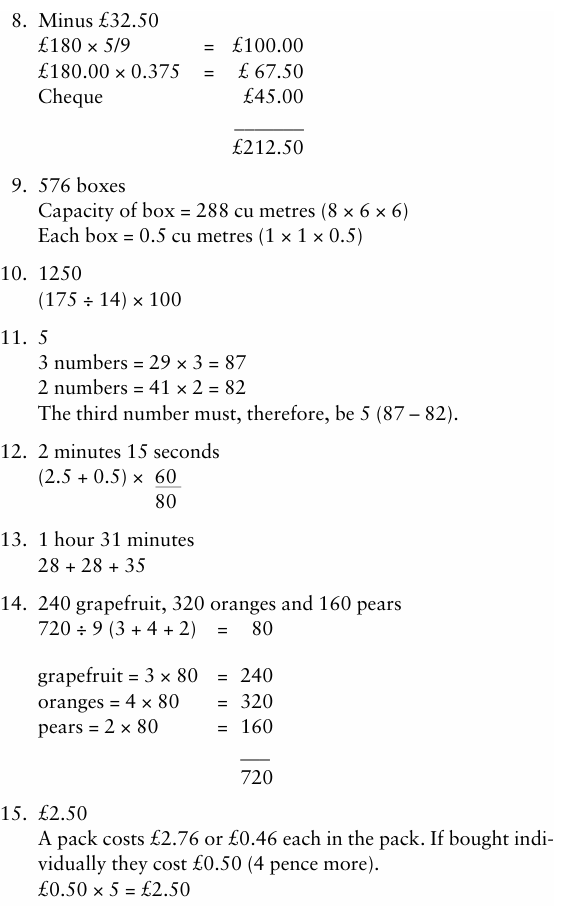Numerical Aptitude Test
We all require some numerical skills in our lives, whether it is to calculate our weekly shopping bill or to budget how to use our monthly income. Mathematical intelligence tests generally explore your ability to reason and to perform basic arithmetic functions. Numerical (mathematical) intelligence is a strong indicator of general intelligence, as many everyday tasks require arithmetical operations or thought processes even though numbers may not be involved. Numerical questions are widely used in IQ testing and, as numbers are international, numerical tests are regarded as being culture-fair, or culture-free, nd designed to be free from any particular cultural bias so that no advantage is derived by individuals of one culture relative to those of another. Tests of numerical aptitude are frequently designed to test powers of logic and ability to deal with problems in a structured and analytical way. Such tests enable employers to test the numerical aptitude of candidates and to determine their proficiency and the extent of their knowledge when dealing with numbers, and their ability to apply this knowledge to the solving of mathematical problems. Good mathematical ability is an excellent stepping stone to career success in jobs such as accounting or banking. People who possess a high level of numerical skills also often excel in jobs such as auditor, business consultant, financial analyst, mathematics or science teacher, quantity surveyor, tax adviser, company secretary, computer programmer or stockbroker
The following is a mental arithmetic speed test of 30 questions, which gradually increase in difficulty as the test progresses. You should work quickly and calmly and try to think at all times of the quickest and most efficient way of tackling the questions. The use of a calculator is not permitted in this test, and only the answer should be committed to paper, the object of the test being that all the working out is done in your head. ( You have 45 minutes in which to solve the 30 questions )
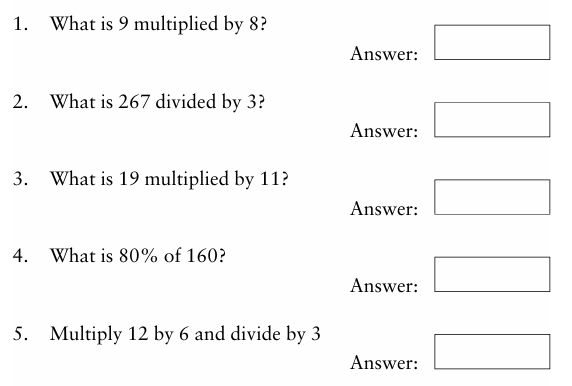
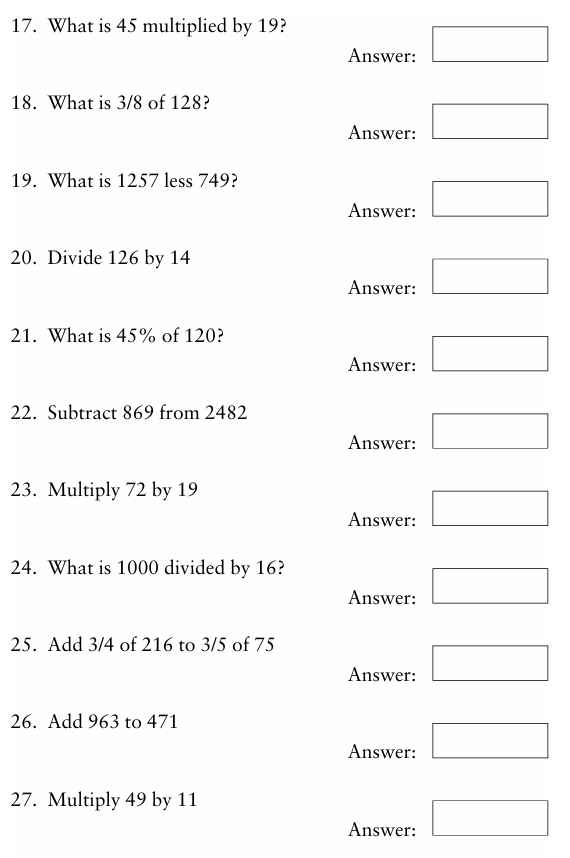
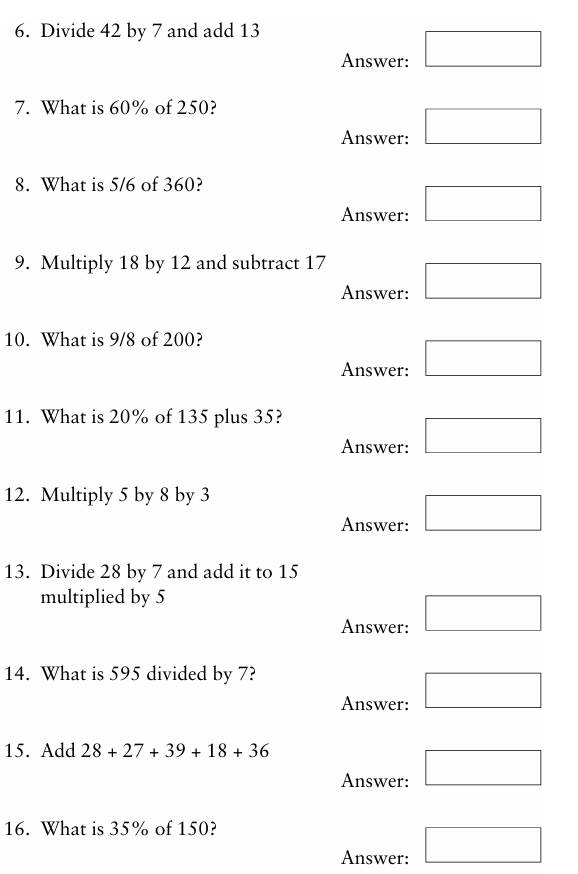
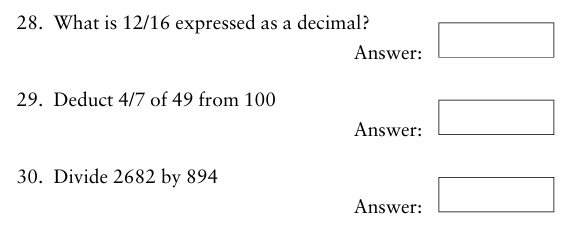
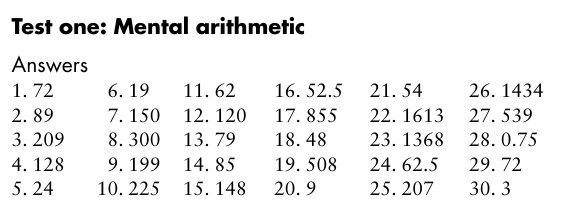
Test two: Numerical sequence test
In a numerical sequence test it is necessary to identify a pattern that is occurring in the sequence. The numbers in the sequence may be progressing, or they may be decreasing. In some cases they may be both progressing and decreasing within the sequence, and in some cases two separate sequences may be interwoven. It is up to you to determine which of these is occurring and to continue the sequence by providing the missing number(s) indicated by the question mark(s) in each question.
The use of a calculator is not permitted in this test.
A time limit of 20 minutes is allowed in which to complete the 15 questions.
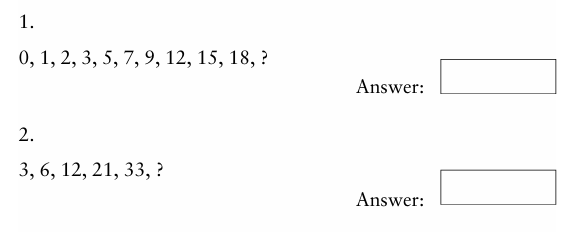
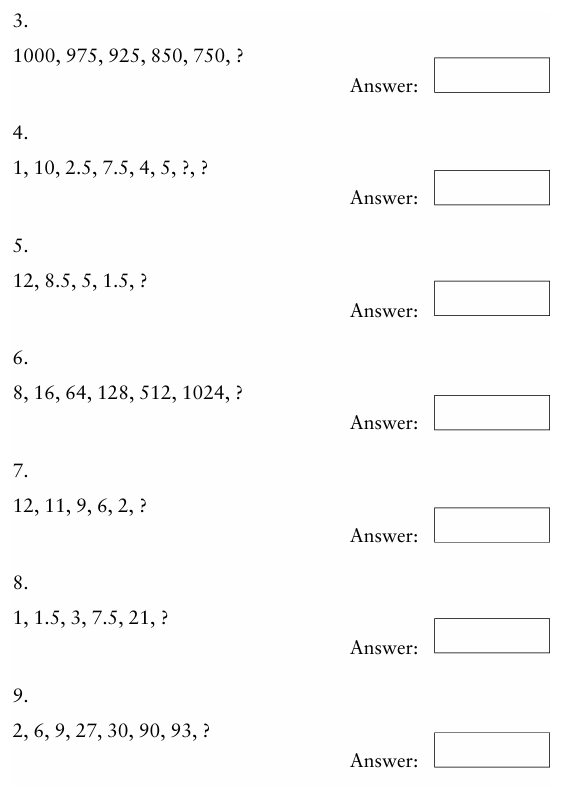
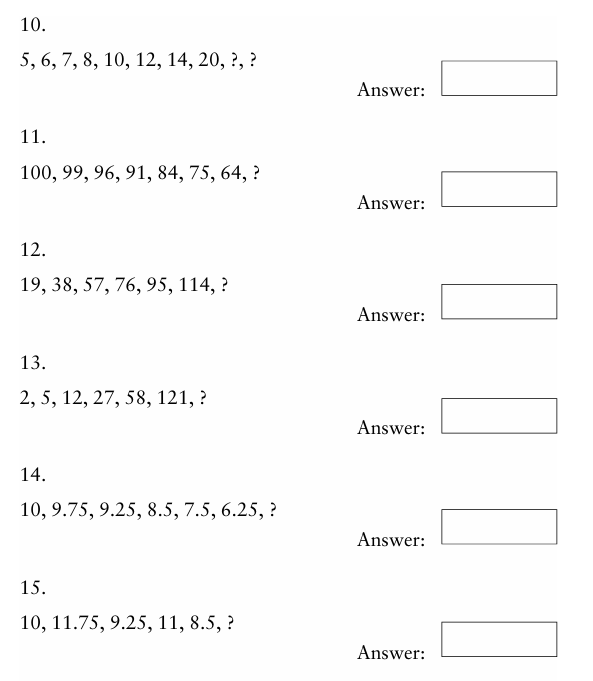
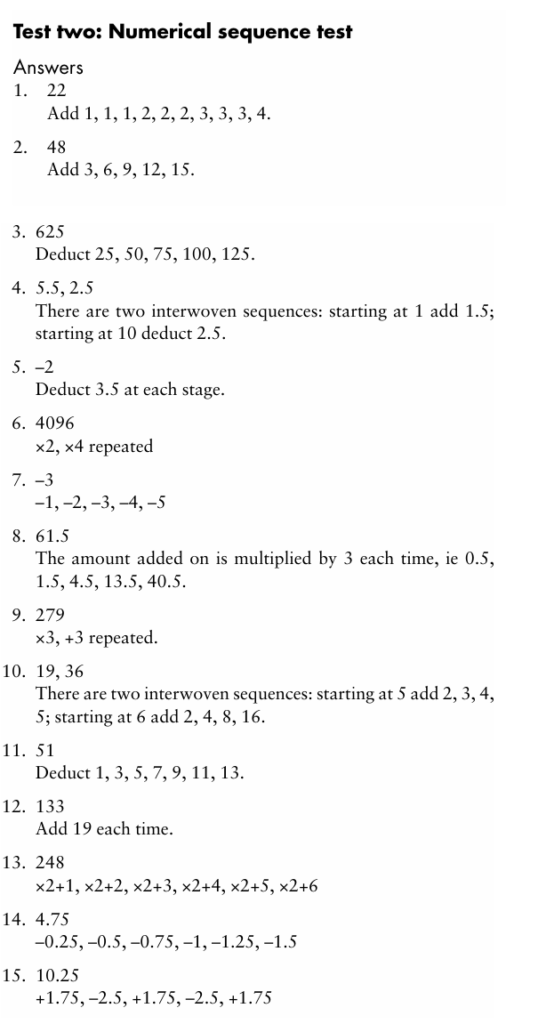
Test three: Working with numbers
This test is a battery of 20 questions designed to measure your ability to work with numbers and think numerically. A time limit of 120 minutes is allowed in which to complete the 20 questions. The use of a calculator is permitted in this test
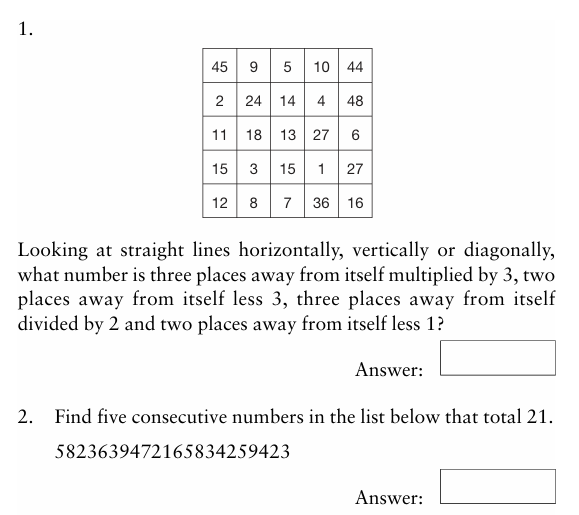
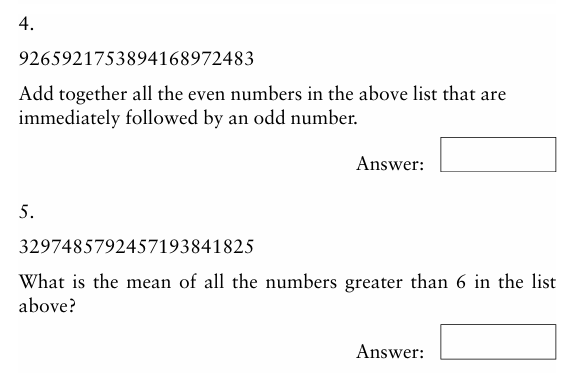
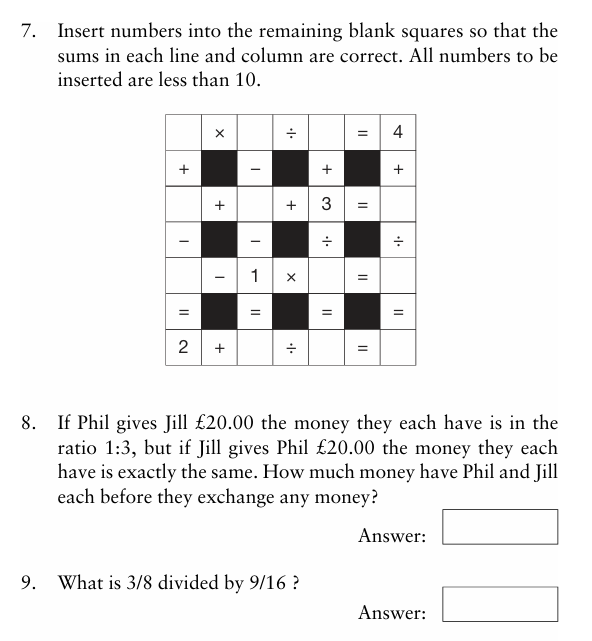
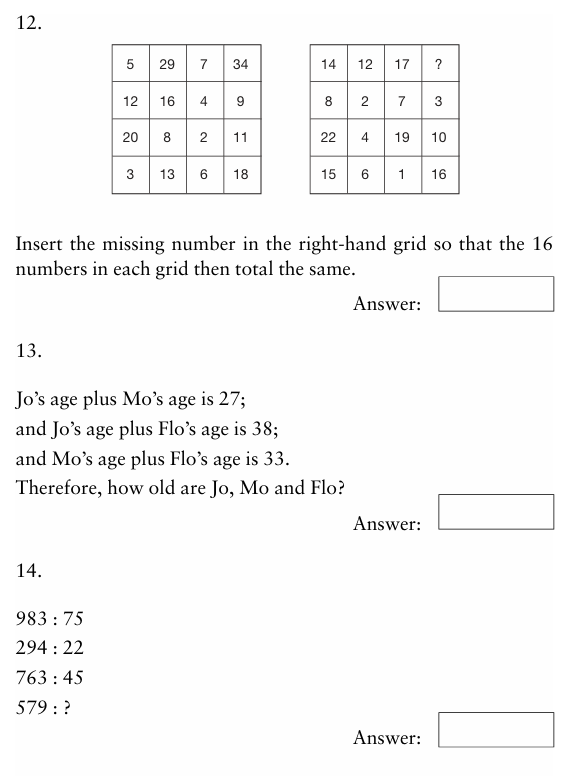
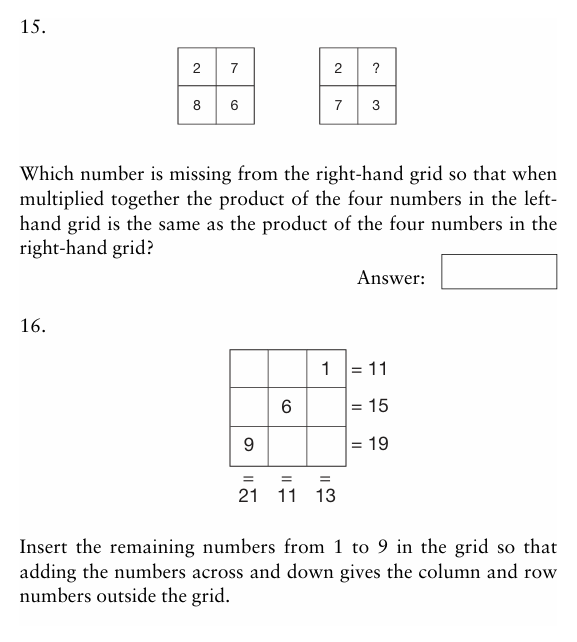
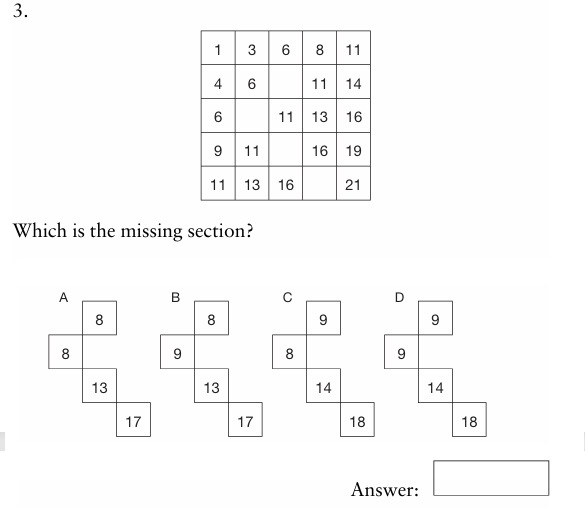
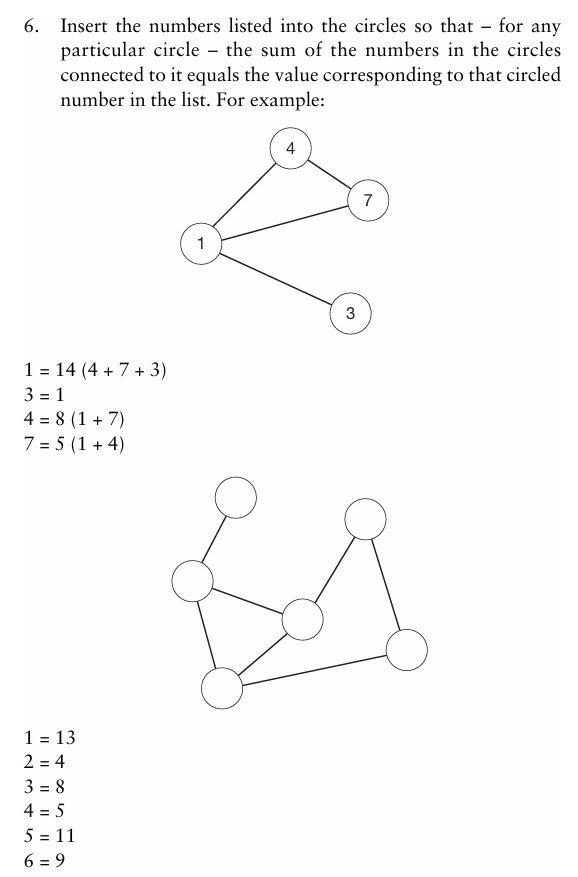
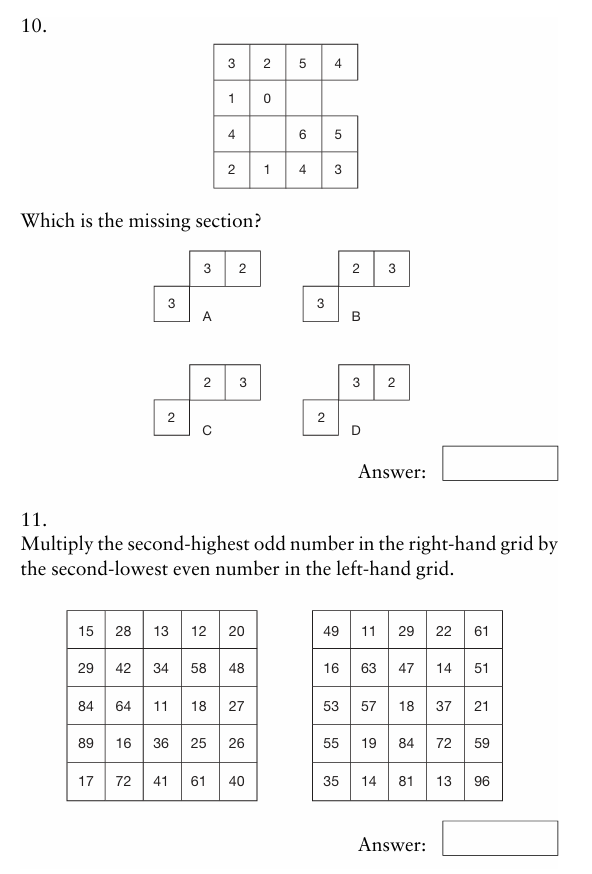
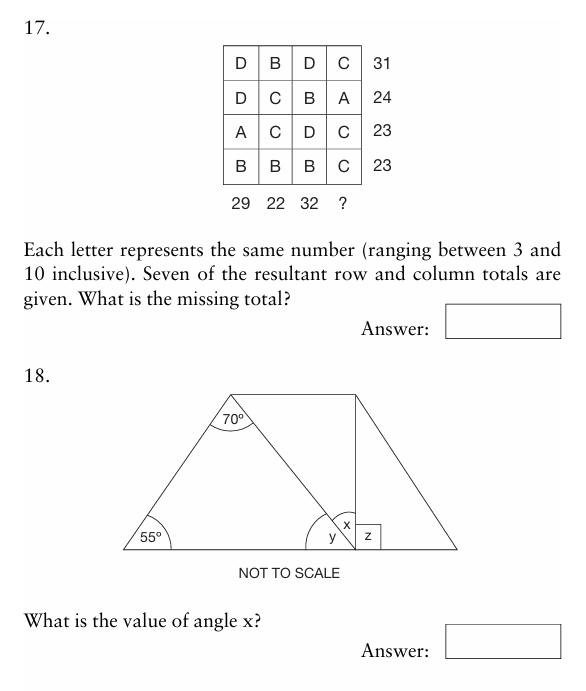
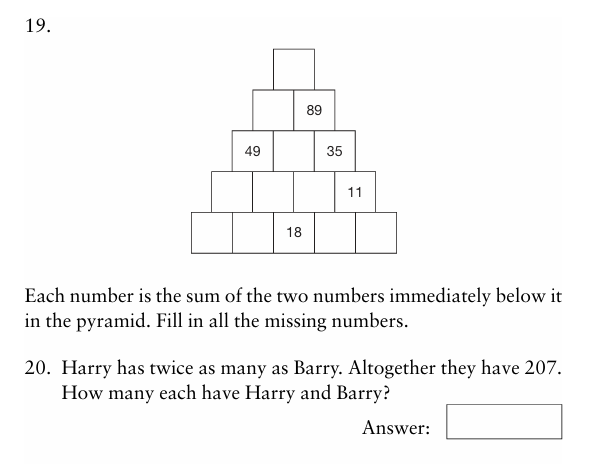
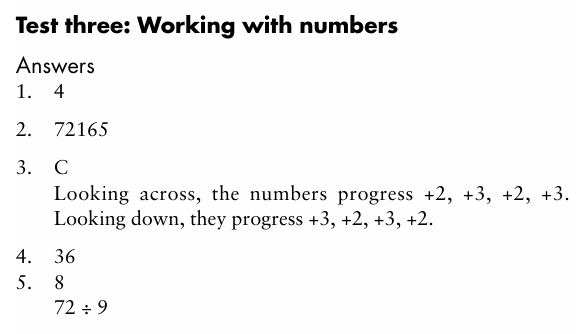
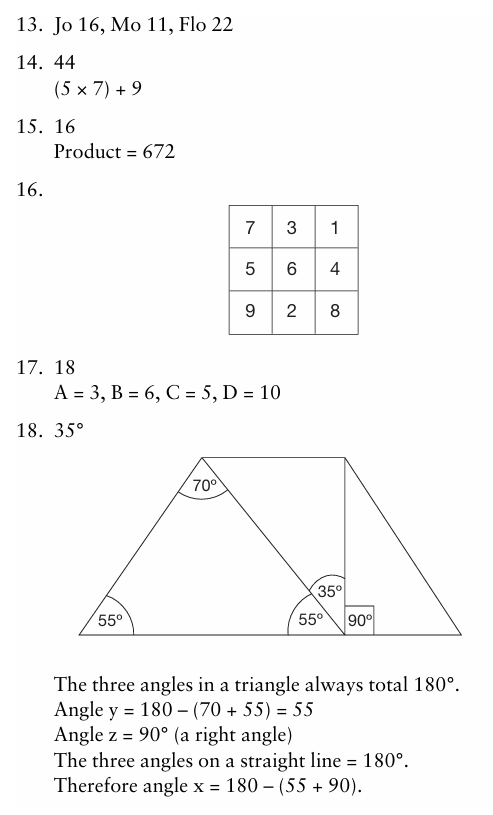
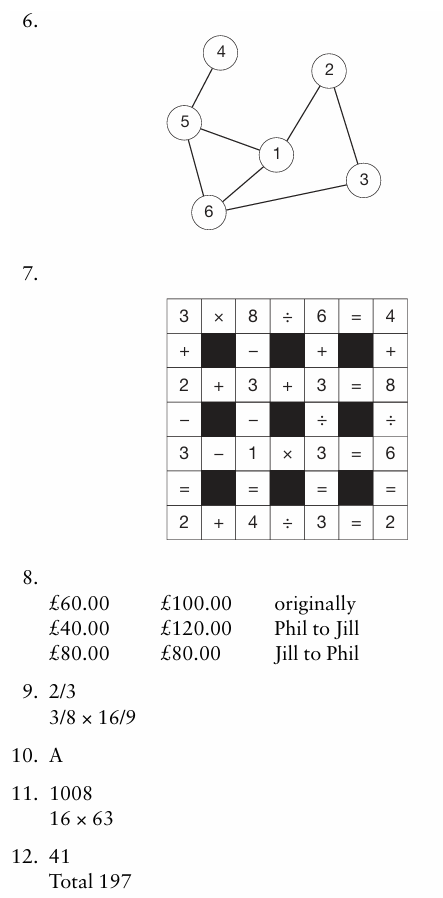
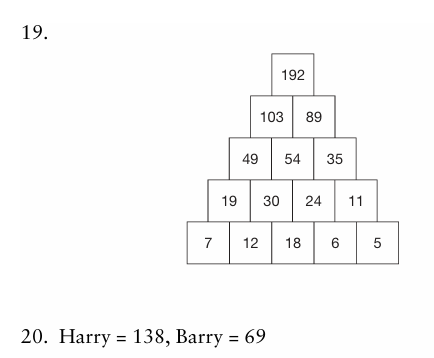
Test four: Numerical problem solving
The 15 questions in this test are designed to assess your aptitude at applying your basic mathematical knowledge in order to solve correctly each problem as quickly as possible, and your ability to deal with problems in a structured and analytical way. The use of a calculator is permitted in this test. You have 60 minutes in which to answer the 15 questions

